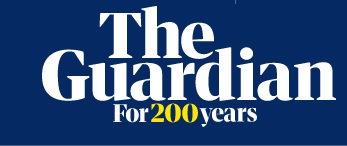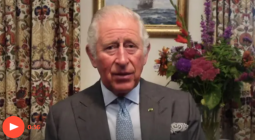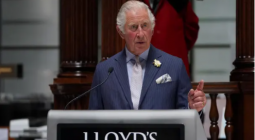Will Charles III be as green a king as he was a prince?
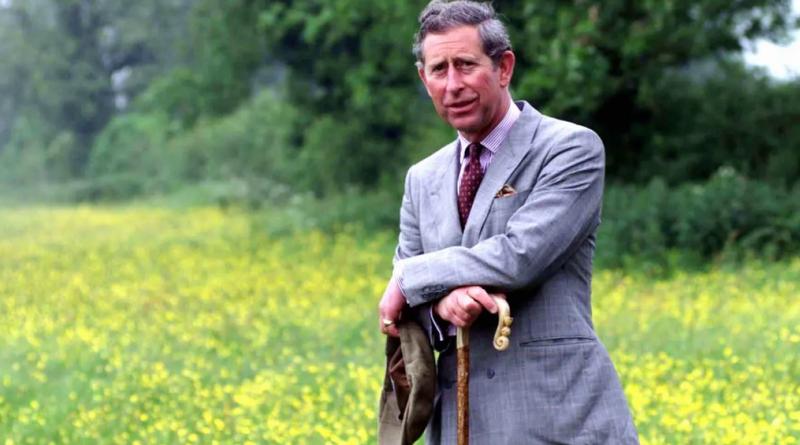
New king will have to eschew grand statements on climate crisis but his role does not stop him talking to the PM in private
In 1970, the young Prince of Wales made a speech warning of the dangers of pollution, and said society must deal urgently with the cost of cleaning it up, and preventing it in the first place.
“We are faced at this moment with the horrifying effects of pollution in all its cancerous forms. There is the growing menace of oil pollution at sea, which almost destroys beaches and certainly destroys tens of thousands of seabirds,” he told the Countryside Steering Committee for Wales. “There is chemical pollution discharged into rivers from factories and chemical plants, which clogs up the rivers with toxic substances and adds to the filth in the seas. There is air pollution from smoke and fumes discharged by factories and from gases pumped out by endless cars and aeroplanes.”
That speech, made when he was 21, was greeted as “dotty” at the time, he later recalled, but today seems prescient.
“He is possibly the most significant environmental figure of all time,” says veteran environment campaigner Tony Juniper, a former chief of Friends of the Earth and now head of Natural England, who advised Charles for several years and co-authored two books with him. “Considering the breadth of the issues he has sought to make progress on, and the consistency with which he has done that. For more than 50 years he has shown commitment, energy and passion. He has incredible depth of knowledge and his impact has been absolutely enormous.”
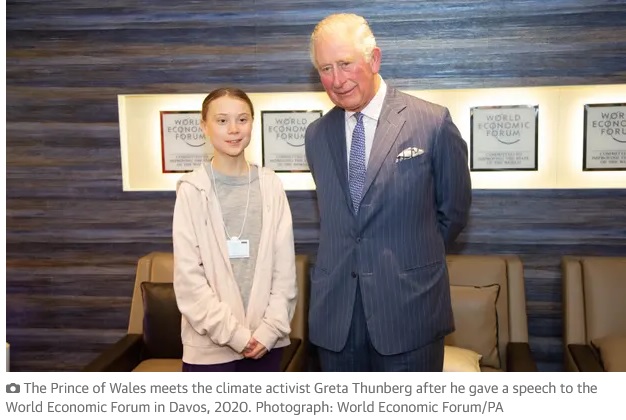
For Charles, this concern began in childhood, particularly at Balmoral, where the Queen, his mother, died this week. He developed a passion for the outdoors, and an interest in farming, and in the 1980s started his Gloucestershire estate, Highgrove, on the path to regenerative organic agriculture, which led to the founding of the Duchy organic brand. He also set up the Prince of Wales Corporate Leaders Group, which brings together business leaders to sign up to green pledges.
In the run-up to Cop26, for instance, he invited the US special envoy on climate John Kerry to Clarence House in London, a stark contrast to the government, which failed to send a minister when Kerry made a major speech at Kew. He laid out the Terra Carta, or earth charter, of environmental goals. His work on rainforests and species conservation has also been taken up by his son, Prince William.
This work has got Charles into trouble. Jonathon Porritt, the former head of the Green party and Friends of the Earth, who also advised Charles as Prince of Wales, recalls the mid-80s when the UK was dumping sewage into the North Sea. Charles spoke out about the problem publicly, asking why it had not been stopped.
“Nicholas Ridley [then environment secretary] was absolutely livid,” recalls Porritt. “He was furious that the Prince of Wales had chosen to use his profile in Europe to fire a broadside – though he [Charles] did not name Ridley or anyone in government.”
Many people might feel that Charles overstepped the bounds of constitutional monarchy on occasion, his supporters acknowledge. As well as his public speeches, there have been private “black spider” letters to government ministers raising concern on green, and other, issues. But his friends argue that his lines were carefully drawn.
“He has managed this skilfully, within the bounds of his constitutional role,” says Porritt, adding that the “black spider” letters were not “extreme rants”, but carefully constructed questions.
As prince, he could also take on issues politicians shied away from. In 2013, he made a surprising speech criticising “the confirmed sceptics” and “the international association of corporate lobbyists” who he said were responsible for the earth being a “dying patient”.
“People have different views on the monarchy, but I hope people will be reassured by the extent to which his judgment [on the environment] has been sound,” says Juniper. “He has raised the alarm on subjects that were previously seen as fringe.”
Will King Charles continue to speak out on the environment from the throne? “Definitely not,” says Porritt. It has always been understood, he says, that the relative freedom Charles enjoyed as Prince of Wales would end as soon as he took the crown. “There was never a shadow of a doubt that anything he did, in convening or some would say campaigning, he was absolutely clear that as soon as he inherited his role, that was it. ”
While as prince he could act as a “one-person NGO”, as one supporter put it, as king he will be constrained by the convention that the monarch should not interfere in the UK’s political decision-making, or take any overt political stance. In recent years, he has tended to tone down his rhetoric in public: the blistering attack on corporate vested interests of 2013 has not been repeated, though he continued with some of his more discreet interventions, taking a role for instance in convening countries and businesses ahead of the 2015 Paris climate summit.
His work on the Commonwealth will also be key. Pakistan, the Commonwealth’s second most populous country, is suffering extreme floods, with a third of the country under water. Many others among the 56 countries are similarly vulnerable as temperatures rise, and the Commonwealth is seen as an important forum for solutions to the climate crisis.
Charles is said to be acutely aware of the niceties of his position, which means his public persona as king is likely to be carefully curated. Private discussions, however, are another matter.
Traditionally, the monarch meets with the prime minister once a week for a strictly confidential conversation. That will be where Charles airs his concerns over the environment in the UK and around the world, and what solutions there may be to the growing crises of the climate and biodiversity.
“Whoever is prime minister should probably anticipate a pretty lively set of conversations on any shortfalls, in private,” says Porritt. “Not immediately, of course, but in due course. Perhaps a year or so down the line. They’d better get ready.”
